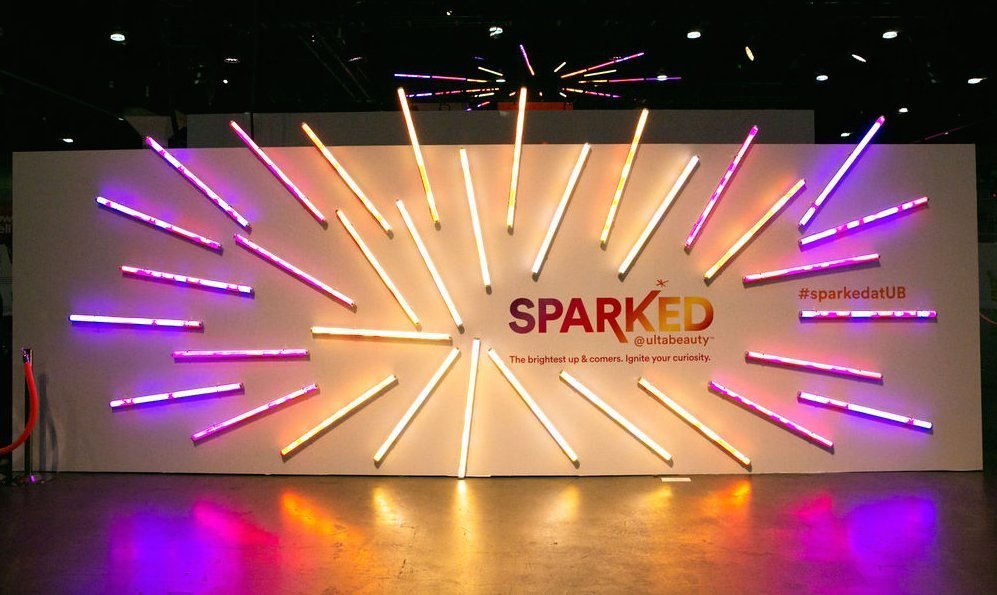
The Battle For Indie Beauty Is On: Ulta Beauty And Sephora Intensify Their Focuses On Up-And-Comers With New Displays
Ulta Beauty and Sephora are going head-to-head in the race to be the go-to destination for the formidable beauty brands of tomorrow.
Shortly after Sephora premiered The Next Big Thing displays containing rising makeup brands in June, Ulta over the weekend revealed the new concept Sparked at Ulta Beauty dedicated to up-and-comers that went live on its website Aug. 10 and will debut in at least half of its stores on Sept. 22. Sparked includes the brands Uoma Beauty, Elcie, Zoeva and Love Wellness.
“This new collection represents our understanding that our guests have an insatiable desire to ‘get it first,’ and know Ulta Beauty is the place for new and exclusive products that you just can’t find anywhere else,” said Tara Simon, senior vice president, merchandising, Ulta Beauty, in a statement. “Sparked at Ulta Beauty exists to pique their curiosity and need for discovery with a mix of must-have brands and products.”
Announced at Beautycon LA, the Sparked format is the result of an ongoing effort by Ulta to onboard disruptive beauty brands. In 2018, the retailer assembled an emerging brands team under the direction of Muffy Clince, formerly senior buyer for prestige cosmetics, to identify embryonic brands with potential and effectively stock them at a retailer of its size. The team introduced eight brands to Ulta in the first quarter, and in excess of 20 brands have rolled out in the second quarter. In total, the retailer carries more than 500 brands and has roughly 1,200 locations.
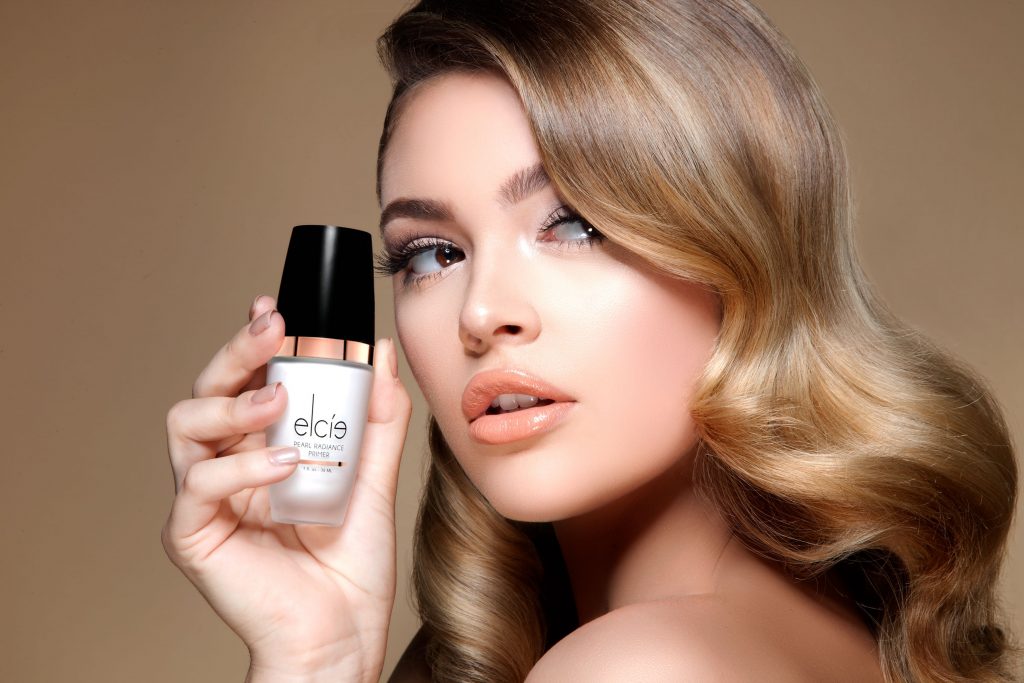
“We’ve always been passionate about launching emerging brands,” says Monica Arnaudo, senior vice president of merchandising at Ulta. “It is part of our DNA and has been since our beginning 29 years ago. The industry is moving so quickly, and we want to bring new brands and brand founders to market.”
Often, beauty entrepreneurs are ill-prepared for the demands of major retailers, a challenge Ulta is seeking to allay with the expertise of its emerging brands team. Other beauty retailers such as Target and Sephora have accelerators that are education and mentorship programs to walk brands through the difficulties of doing business at massive chains.
“We’ve always been passionate about launching emerging brands. It is part of our DNA and has been since our beginning 29 years ago. The industry is moving so quickly, and we want to bring new brands and brand founders to market.”
Sharon Chuter, founder of inclusive cosmetics brand Uoma Beauty and former LVMH Moët Hennessy Louis Vuitton executive, appreciates the attention Ulta is paying to budding brands. “I created my brand for the others: the misfits, anyone who has been told they aren’t enough,” she says. “Ulta has believed in my crazy concept and allowed me to tell my story. Some companies would tell you to go online first, but Ulta put us in 200 stores, and we already have a strong following, especially for our Say What! Foundation.”
Inside stores, the brands involved in Sparked, which has a heavy emphasis on makeup, will be highlighted in a table presentation. Ulta plans to launch another Sparked collection for holiday, followed by another release of newbies in January to persuade consumers interested in uncovering the best of beauty to return again and again to its stores.
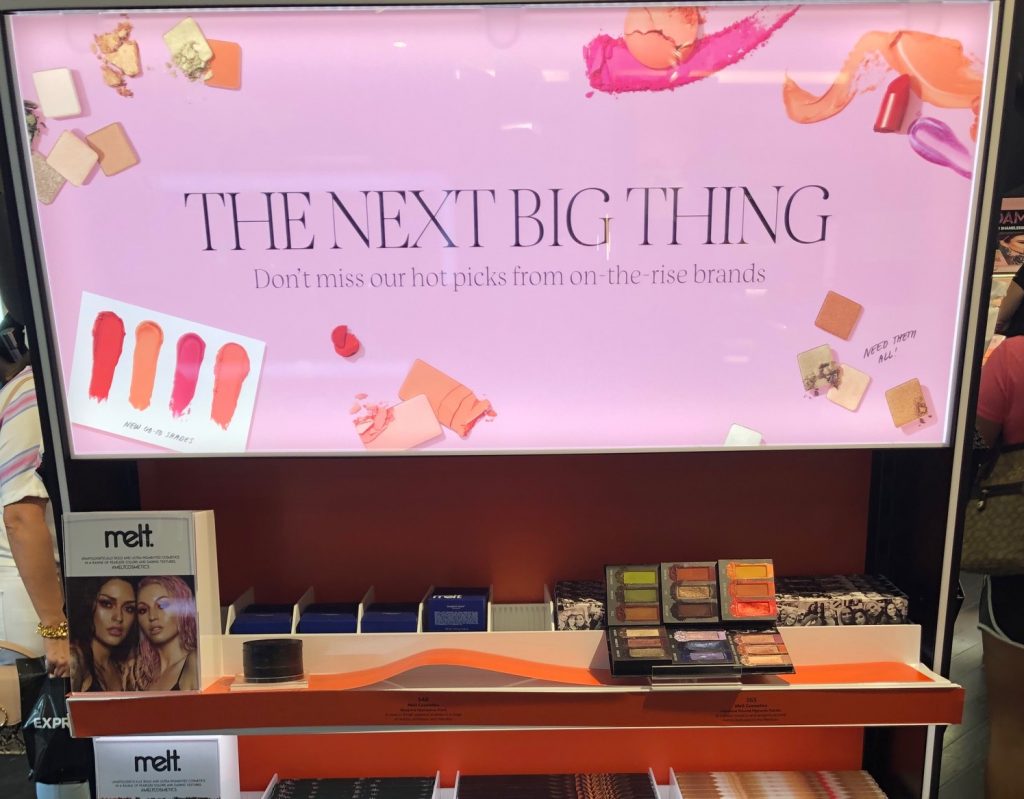
Sephora has yielded key space to digitally native and indie brands for both a skincare trend wall and its The Next Big Thing installation. Sephora’s The Next Big Thing bowed in its Times Square store and is spreading across its U.S. retail network by the busy holiday shopping season. Sephora has around 460 stores in the Americas. Among the 20-plus brands in The Next Big Thing display are Melt Cosmetics, Farsali, Violet Voss, Artis, Patrick Ta, Natasha Denona, Grande Cosmetics, Jouer Cosmetics and Pretty Vulgar.
Sephora is trying to nab exclusives, and most of the brands in Sephora’s Next Big Thing are either the retailer’s alone for a certain period or have limited distribution. New merchandise will rotate in as launched or on a quarterly basis to keep the selection novel. For indie brands, the value of Sephora and Ulta as business builders can be seen in the investment deals and exits of brands like Herbivore, IT Cosmetics, Tatcha, Kopari and Briogeo.
“Ulta has believed in my crazy concept and allowed me to tell my story. Some companies would tell you to go online first, but Ulta put us in 200 stores.”
The Next Big Thing joins Clean at Sephora and a haircare products wall entering 100 doors as strategies Sephora is employing to shake up sales and boost its au courant currency. Ulta has ventured into the clean category as well with brands like Kopari, Better Skin Co., Tula and Little Barn Apothecary. During Ulta’s first quarter earnings call, David Kimbell, chief merchandising and marketing officer, said, “Newly created brands that are focused on clean or natural wellness beauty are driving a lot of growth.”
The push to introduce customers to nascent brands stems from consumers’ voracious appetites for fresh brands. The NPD Group’s research shows the sales of digitally native beauty brands advanced at the same rate as traditional prestige beauty brands last year, quite a feat considering the fledgling lines don’t have the money to invest in splashy marketing campaigns. In the mass universe, Nielsen data suggests that sales last year in cosmetics would have been in the minus column without upstarts.
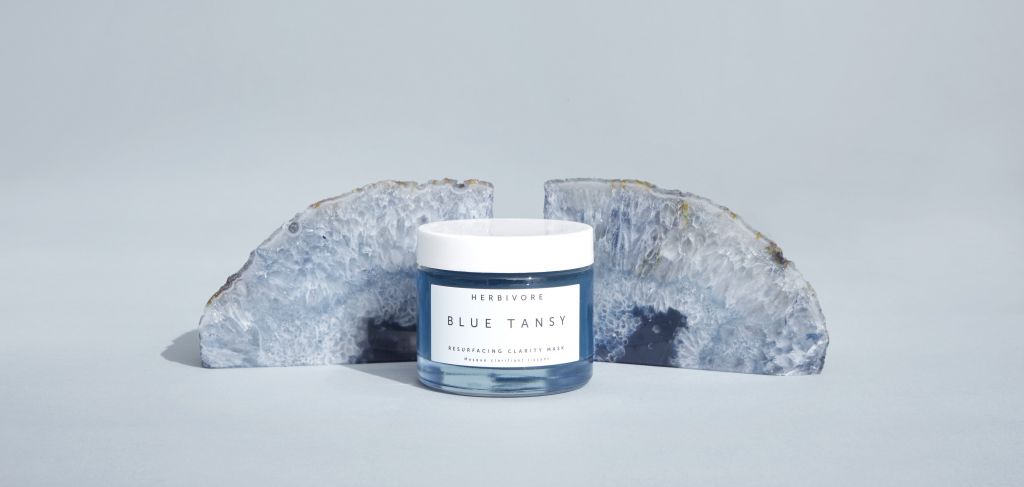
Exclusivity is important as brick-and-mortar retailers vie to attract consumers for reasons aside from convenience and price. Emerging brands are prone to offer exclusivity to secure a retailer and draw its promotional energy. In the fourth quarter, Ulta reported as much as 7% of its merchandise was exclusive. Speaking to analysts earlier this year, Mary Dillon, CEO of Ulta, said digitally native brands have sought Ulta out as their only physical retailer for distribution. Kylie Cosmetics and Beauty Bakerie are examples of brands born online that have used Ulta as their retail platform to reach beauty consumers in person.
Sparked and The Next Big Thing arrive as entrenched color cosmetics players experience softness, and makeup has taken backseat to growth in skincare. In the second quarter, NPD estimates prestige makeup sales were down 4% to nearly $1.8 billion. Prestige skincare was up 7% to $1.4 billion. Discussing the struggles of some established prestige makeup brands at Ulta, Dillon said in the first quarter earnings call, “We’re going to continue to add new brands and work with our brand partners to continue to drive innovation pipelines, and balance…the risk of that with the other great newness that we bring into the pot.”
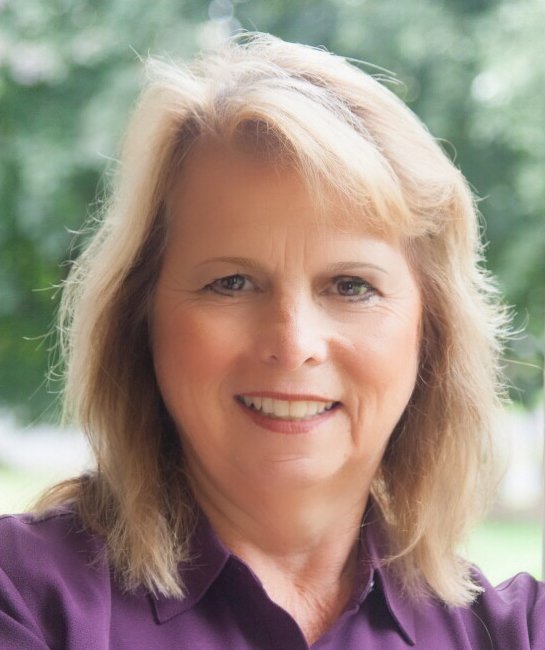
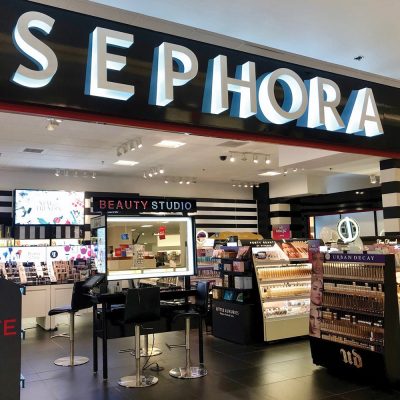
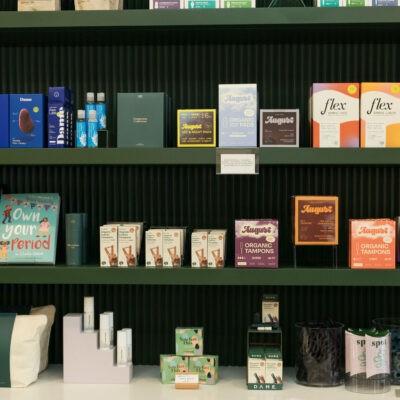
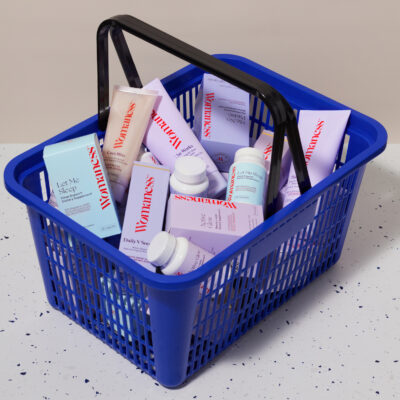

Leave a Reply
You must be logged in to post a comment.